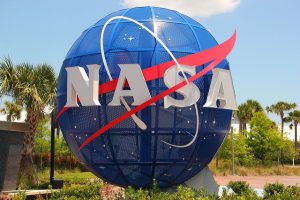
Flickr user Francisco Schmidt
Dream of working for NASA? Your undergraduate major matters if you’re going to apply to the agency after you graduate college.
Engineering
Engineering is a broad category and major, but definitely one you’ll want to think about if you’re dreaming of working for NASA. You have plenty of options when it comes to engineering and NASA, including Materials Engineering, Mechanical Engineering, Structural Engineering, Chemical Engineering, Biomedical Engineering, Aerospace Engineering, and over a dozen others.
No matter which major you decide on, it’s important to note that engineering is a difficult major and will require advanced classes in science, mathematics, mechanics, statistics, physics, and more.
Computer Science
Computer science is a very popular and more common degree that could open doors to getting a job at NASA. The major may help you obtain a career in robotics, software, hardware maintenance, air traffic control simulations, and more.
You should note, however, that if you’re planning on working towards a bachelor’s in Computer Science, NASA requires you to have taken specific courses. This includes at least 30 hours of work in mathematics, statistics, and computer science. At least 15 hours of these must be a combination of statistics and mathematics classes and include differential and integral calculus.
Ceramics
If your life’s passion is ceramics, you may just be able to find a position at NASA with a degree in this art form. You might also want to consider Ceramic Engineering, which teaches you to develop materials such as cement, ceramics, and porcelain. Positions at NASA would require you to work with specific materials, including researching, developing, designing, and testing them.
As with a computer science degree, NASA will require specific experience when it comes to ceramics. You will have to take at least 12 semester hours in refractory ceramics, cermets, or protective coatings.
Meteorology
If you have an interest in the atmosphere motions, the upper atmosphere, climate change, or the formation of clouds, you may want to steer towards a degree in meteorology. NASA hires employees who can operate or design instrument systems, analyze atmospheric data, create models, or conduct work in the laboratory. You can work towards producing a better understanding of climate change, weather forecasting, and more.
Working in atmospheric sciences at NASA, of course, includes meteorology, but you can also work in this department if you have a background in physics, chemistry, mathematics, or geography. They will also consider other bachelor’s degrees such as oceanography or geophysics.
Don’t see your major listed above? Don’t lose hope! Dozens of majors can still dream of working at NASA. Space Science, Astronomy, Materials Science, and Metallurgy are just a few more choices you may want to consider when it comes to your degree. If you’re interested in a job at NASA, make sure to do your research now, both into the degrees they require and the careers available. Also note that some jobs at the agency will require a Master’s degree, experience, or both!
Use College Raptor to discover personalized college matches, cost estimates, acceptance odds, and potential financial aid for schools around the US—for FREE!






